#Literary Journal
Text
If only one of my posts gets read by amateur authors let it be this:
SUBMIT YOUR WORK TO THE TOP PUBLICATIONS FIRST AND WORK YOUR WAY DOWN!
What do I mean by top? Standards of quality, audience, pay rate, legal contract; it can be anything. What matters is that you set the metric you prefer and aim for the top.
I say this because most new authors think that when submitting short stories, or flash fiction, or poetry, you need past credentials to publish with the highly-ranked publications. That's probably true but the logic is backwards. By the time you're good enough to publish in the highest ranking magazines, you've probably already published in a lot of others. Don't settle, you have nothing to lose.
Let's look at two scenarios. One in which you believe in your writing and one in which you don't.
The confident writer starts submitting to all the top publications. They submit, wait for a rejection, and submit again to a different one. They slowly work down the line until finally they hit the very top of the range of publications that are willing to accept their work. They now know what market they have a chance in and what markets to read from to improve.
The insecure writer starts submitting to all the unknown/unpaid/unvetted publications. They need to build credentials before they can submit to the preferred publications, right? If they don't get scammed out of rights they slowly move up the line of publications. They stop when they get accepted by the very bottom range of publications that will pay them the least amount, or give the least exposure, and think themselves lucky. And now they find themselves gaining much less confidence, and much less understanding of the markets, than if they started from the top. They'll have markets they believe they have to learn from when really they've surpassed them.
Even in the worst case publishing scenario: only one market accepts your publication at the very bottom, the only thing that is lost by being confident is your time. With any other publications willing to accept your work, you're guaranteed to get the better deal by being confident. Starting from the bottom is only self sabotage.
You may get more rejections (or even fewer than you think), but if you keep your head up and keep pushing, it'll be better for your writing and your confidence in the long run.
Besides, you'll probably be scammed less if you start with the ones that everyone trusts.
#writing#publishing#short stories#flash fiction#publication advice#writing advice#poetry#writeblr#writers of tumblr#writers community#literary magazines#literary journal
525 notes
·
View notes
Text
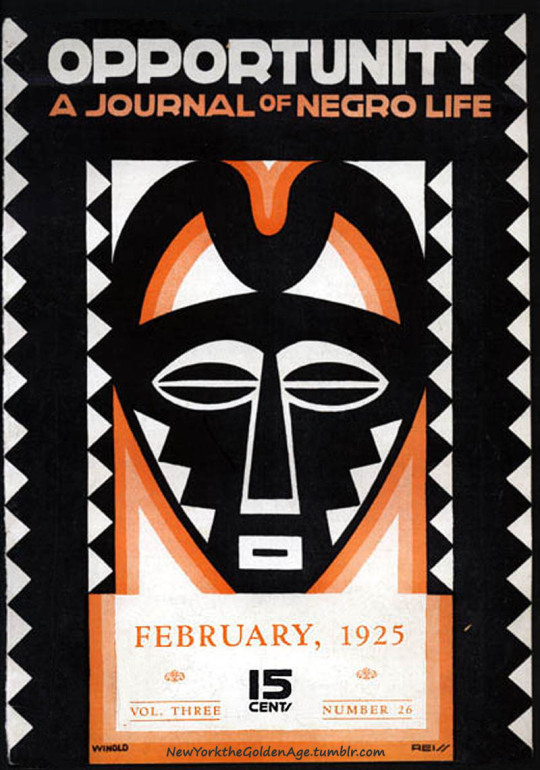
Opportunity: A Journal of Negro Life, February 1925, cover design by Winold Reiss. Opportunity was an academic journal published by the National Urban League. It acted as a sociological forum for the emerging topic of African-American studies and was known for fostering the literary culture during the Harlem Renaissance. It was published monthly from 1923 to 1942 and then quarterly through 1949.
Photo: winoldreiss.org
#vintage New York#1920s#Winold Reiss#Opportunity: Journal of Negro Life#Black publications#Harlem Renaissance#National Urban League#literary journal#literary magazine#Art Deco#magazine cover
42 notes
·
View notes
Text

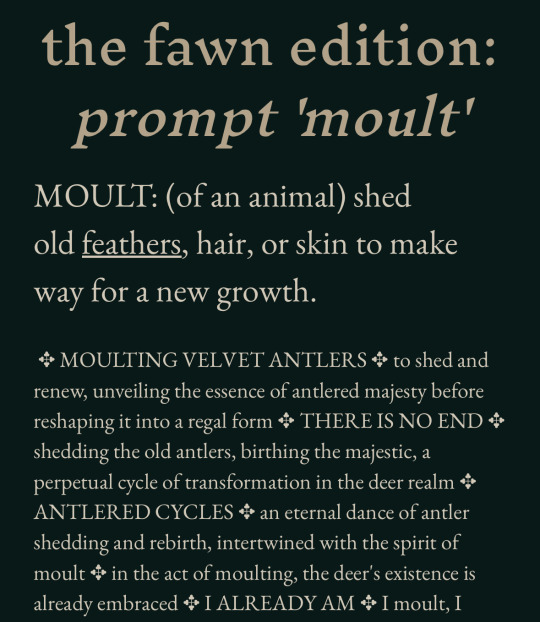
antler velvet is a new indie arts magazine that wants creators, aesthetes and consumers of the arts to submit their work for publication. our prompt for this edition is MOULT. how might you moult? how do words moult? TELL US!
#dark academia#literary magazine#literary journal#arts#art magazine#arts magazine#visual#visual arts#visual artists#artistsontumblr#publishing#poetry#poets#poet#drawing#painting#sculpting#essay#writers#writing#bookblr#books
47 notes
·
View notes
Text
Reading literary articles as a baby scholar...
Honestly, you don’t (strictly) have to be new to academia to follow these tips. This is for anyone who is, in any way, struggling on how to read through literary articles. Maybe you’re having trouble understanding the text or you simply have too many things to read for your upcoming literature review or essay, etc. Either way, hopefully these tips would help make reading a little easier:
Read the abstract or summary: this might sound obvious, but it really helps! Reading through abstracts or article summaries can give you an idea of what the article might be about and if it’s relevant to your research. It can help you narrow down articles you need for further reading and give you a place to start. Some articles also include a list of keywords that you can look through to see if they fit the theme of your essay. Sometimes if the abstract or summary is detailed enough, and you are in a time crunch (emergency use ONLY), you can just refer to that instead of reading the whole article.
Read the book review or peer reviews: sometimes literary scholarship can be a little too dense and you might have trouble reading or understanding the text. Or sometimes there is just too much stuff to read through and the words start to get a little blurry🙁. In that case, instead of slogging through and reading the whole article/book/chapter read the book review or peer review instead. Not only will a review help you summarize the key points of the article/book/chapter, but the included commentary or criticism on the weak points of the text would help you get a clearer picture of both sides of the argument. This is also a useful tip to use if you’re just having trouble accessing a particular resource; you’re more likely to find and access reviews on it (especially if it is a book or chapter).
Read the first and last lines of each paragraph: this will give you a general idea of what each paragraph is about. Usually, the key points can be found in the beginning and end of a paragraph so reading the first and last lines should give you a mini summary of what the text is about. It’s a great way to speed read through your articles.
Search up keywords or phrases: if your research article comes in digital format you can just do a search of keywords or phrases of what you’re looking for. Then look at the highlighted words or phrases and just read the lines for context. This way you can gauge the article’s relevance to your research topic. You can set these aside for later in depth analysis as well.
Hope this makes reading dry, literary articles a little bit easier! 😊
#deliriousdisquisitions#delirious disquisitions#studyblr#bookblr#gradblr#books#literature#english literature#international students#international student#study tips#study notes#literary journal#literary articles#reading#how to read#reading tips#research paper help#research paper#writing tips#essays#academia#chaotic academia#dark academia#academic essay#essay writing#literature review#currently reading#writing#college student
202 notes
·
View notes
Text
Five Reasons We Love Andrew Scott’s Hamlet
Hey all—I know we’ve been posting a lot of web weaving lately (we love a good web weave—especially about grief, loss, and torturous love—it’s kinda what we are all about on this blog—) but we have decided to shake it up and post about the especially lovely adaptation of Hamlet we watched just before Christmas—nearly four hours long but 100% worth it.
REASON NUMBER ONE:
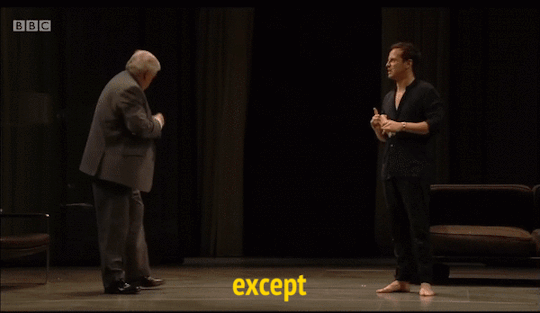
He does insane, sassy, and irritated so damn well. This mockery of Polonious is classic—just because Hamlet has lost his marbles doesn’t mean is stupid—he knows what’s up and he know’s he is being watched every moment of his frenzied dive into the abyss.
REASON NUMBER TWO:
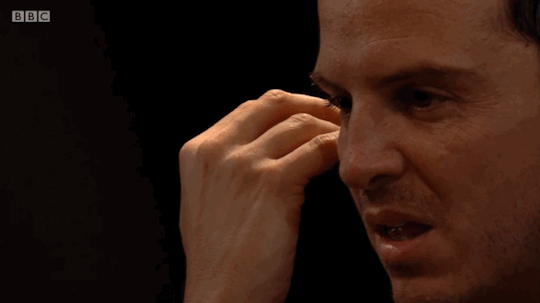
He wears the veil of doubt with sincerity and desperation—to be so resistant to do what the Ghost has said—to still be giving his Uncle even an ounce of leeway, shows that in Hamlet’s heart there is still some tenderness yet and Andrew Scott shows that desperate clinging to tenderness and compromise as a beautiful, yet painful thing—it makes Hamlet’s fatal flaw all the more apparent.
REASON NUMBER THREE

His performance of the most famous speech in Hamlet is so quietly despairing and so subtlety laced with sorrow’s edge. Most (at least in my experience) actors at this point dive full on into loud and angry and crashing; but Scott decides to embrace the soulful and soft pondering of the depression and grief within Hamlet—I love the different take!
REASON NUMBER FOUR

He embraces the absurdity with wonderful restraint. Scott’s decision to focus the underlying tension within Hamlet’s understanding that the situation is absurd—from the funeral to the wedding to the call to vengeance—he is acutely aware that the situation is ridiculous and that all will be unsatisfactorily resolved and yet he is compelled to try to find a resolution that will solve the mounting problems in Denmark. Scott plays it fantastically—humor at ever turn and yet such sorrow and awareness that much is doomed.
REASON NUMBER FIVE:
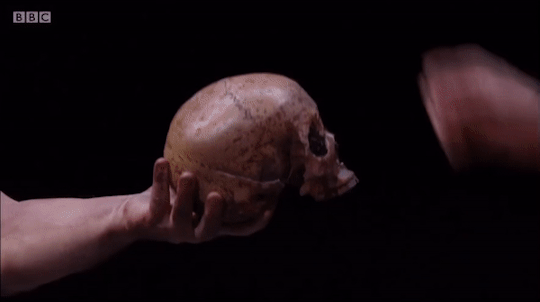
In the graveyard scene his genuine surprise, grief, and tenderness towards Yorrick only makes the following scene with Ophelia much more heartbreaking—it seems, at some point at his time he had forgotten the mortality of those outside himself, suprising as it is in the fallout of his father’s death—and the gentle reminder to be follow by the dagger of sharp and large reminder through Ophelia is played through so very very well.
In conclusion—please watch Hamlet with Andrew Scott—you won’t regret it. I’ll even link it down below.
youtube
#hamlet#andrew scott#literary journal#literary posting#litblr#literature#literary#lit#poetry#deathsdormantdaughter#books & libraries#literary magazine#Youtube
23 notes
·
View notes
Text
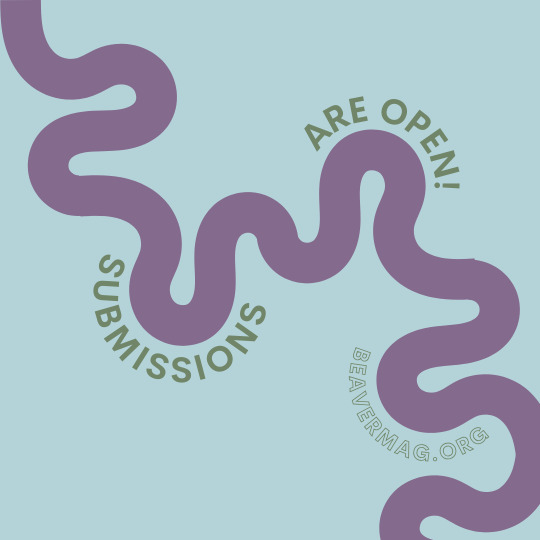
We're open again!!!!! Check out our website for more submission info and then head to submittable to send us your funkiest!!
7 notes
·
View notes
Text
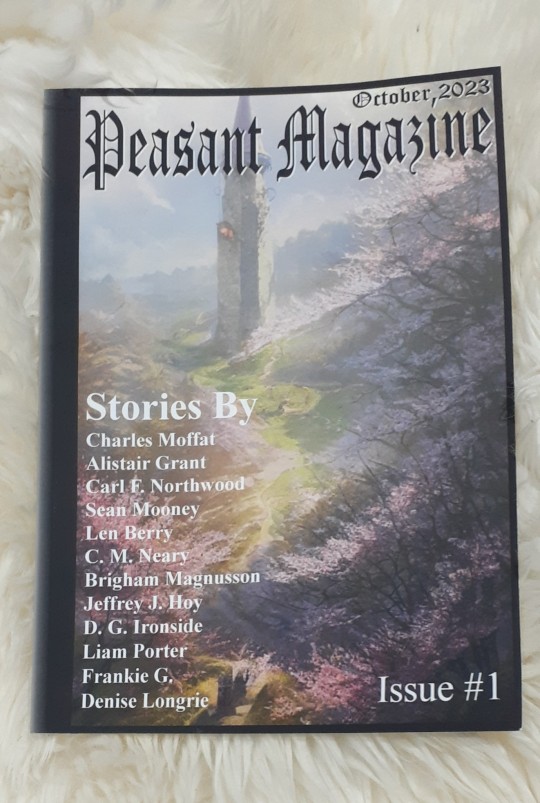
CALL FOR SUBMISSIONS
Peasant Magazine is looking for fantasy and historical fiction short stories between 1,000 and 8,000 words in length.
Visit fiction.charlesmoffat.com/peasantmagazine/ to learn more.
Peasant Magazine is available as a free PDF and in 8×11 magazine format.
https://fiction.charlesmoffat.com/peasantmagazine/
#author#writing#fantasy#fantasybooks#heroic fantasy#fantasy books#literary magazines#literary journal#fantasy short stories#fantasy short story
10 notes
·
View notes
Text
#happy halloween#literary journal#literary magazine#literary#lit#literature#pop culture#poetic prose#prose poetry#poetic#poetry#editors on tumblr#poems on tumblr#poets on tumblr#original poems#original poem#prose#litblr
125 notes
·
View notes
Text
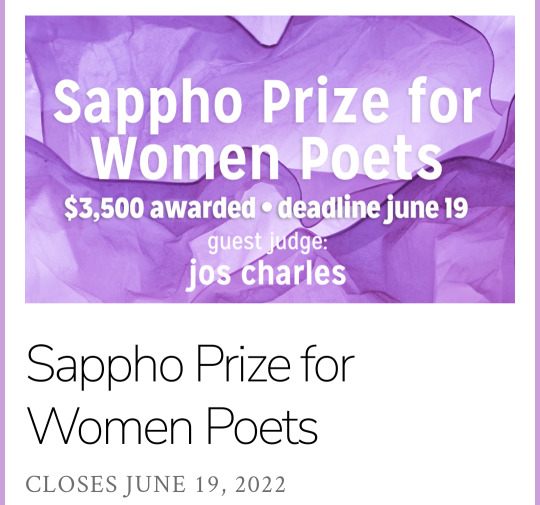
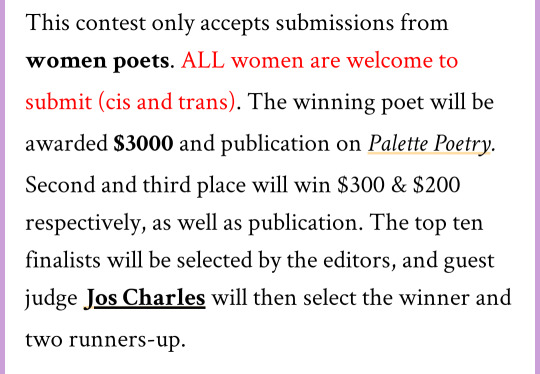
sappho prize for women poets, held by palette poetry. read more about submission guidelines & apply here
[Text ID: Closes June 19, 2022. This contest only accepts submissions from women poets. ALL women are welcome to submit (cis and trans). The winning poet will be awarded $3000 and publication on Palette Poetry. Second and third place will win $300 & $200 respectively, as well as publication. The top ten finalists will be selected by the editors, and guest judge Jos Charles will then select the winner and two runners-up. /End ID]
#poetry#poetry submissions#open calls#jos charles#palette poetry#wlw poetry#lesbian poetry#trans poetry#women poets#paid opportunity#sappho prize for women poets#trans friendly#lgbt poetry#queer poetry#literary journal#submissions wanted
245 notes
·
View notes
Text
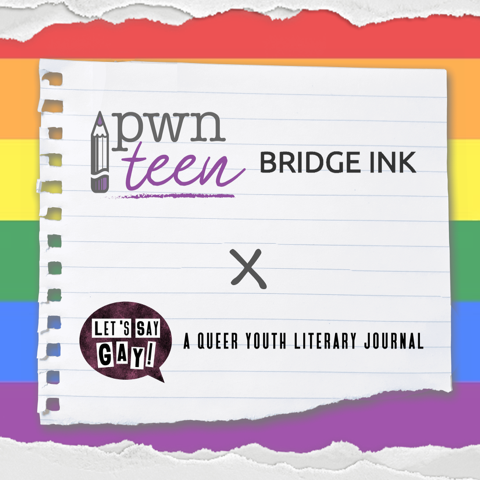
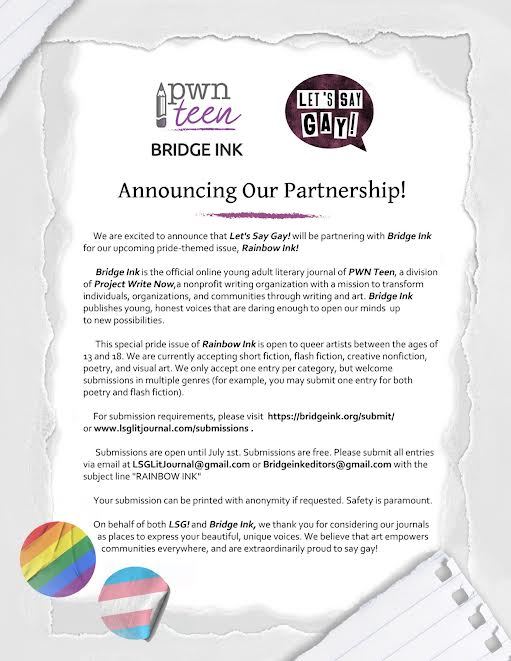
Happy Pride Month everyone! Let's Say Gay is partnering with Bridge Ink to extend and reach queer youth everywhere. We are pleased to announce our partnership, and would like to remind you that the deadline for submissions has been extended to July 1st.
Submit to LET’S SAY GAY! a literary journal for queer-identifying youth ages 13-18. We accept writing, poetry, visual art, and photography. We are accepting of all queer identities and the intersectionality and nuance that may accompany them. And it's free to submit! You don't even have to put your name out in the public. For more information on submission guidelines, go to lsglitjournal.com
#letssaygay#letssaygaylitjournal#lgbtq+#lgbtqplus#lgbtq#zine submissions#zine promo#lit mag#lit mags#lit journal#literary journal#literary magazine#lgbtq youth#queer youth#queer community#lgbtq community#lgbtq positivity#poetry#art#photography#writing#queer zine#lgbtq representation#lgbtq pride#lgbtqia#lgbtq zine#bridge ink#pride month
35 notes
·
View notes
Text
By: Leigh Ann O’Neill and Brent Morden
Published: Oct 12, 2023
It’s Fall, and writers are submitting their best stories, essays, and poems to literary journals, which have reopened after the summer break. The readership for many of these journals may be small, but they are powerful gatekeepers for aspiring poets and literary authors. Many journals receive hundreds, or even thousands, of submissions every month, from which they typically select only a few pieces for publication. Of the works they publish, they nominate only a handful for prestigious prizes—such as the Pushcart, the O. Henry, and the Best American series—which can launch a young writer’s career.
In apparent violation of federal anti-discrimination law, a growing number of literary journals across the United States are openly discriminating based on race or ancestry in setting the fees they charge to writers submitting their work. By following the current trend toward race essentialism, literary journals are establishing an ominous precedent, while flouting the fundamental principle of equality under the law, regardless of skin color.
Submitting work to journals is easier now than it once was. Gone are the days of mass postal submissions and stamped self-addressed envelopes. Most journals have transitioned to electronic portals such as Submittable.com to manage submissions; and they often charge hopeful authors a submission fee to defray their operating costs. All you need to do is upload your piece, pay your money, and keep your fingers crossed. A single story or poem might be rejected dozens of times before it finds a home.
Even though these fees are typically quite low—five, ten, or twenty dollars—they can start to add up, especially when one considers that the payment for published work offered by these journals is often nominal. Historically, journals have been mindful of the hardship their fees can impose. Harvard Review, Yale Review, and many other prestigious publications offer need-based fee waivers or fee-free submission periods in the case of authors suffering financial hardship.
Recently, however, many journals have taken a different approach: They are assigning fee waivers on the basis of applicants’ skin color and ethnicity. At Ecotone (affiliated with the University of North Carolina), for example, “historically underrepresented writers” may submit earlier than others, and are exempt from fees entirely, regardless of financial need. A similar policy was implemented at Indiana Review (Indiana University Bloomington), where “Black, Indigenous, and Person of Color (BIPOC)” writers were automatically exempted from fees. (Non-BIPOC writers were required either to pay, or to request fee waivers on an individual basis.) At Black Warrior Review (University of Alabama), those who are a “Black, indigenous, or incarcerated writer … may skip the Submittable process and email your submission directly to the editor … for no fee.”
These race-based fee structures violate Title VI of the Civil Rights Act, which prohibits discrimination based on race, color, or national origin by universities and colleges that accept federal funding. In the case of public universities, race-based fees also run afoul of the Equal Protection Clause of the Fourteenth Amendment. And yet, this sort of overtly race-based treatment has continued largely unnoticed and unchallenged.
At the Foundation Against Intolerance & Racism (FAIR)—where the two of us serve as managing director of legal advocacy, and managing director of FAIR in the Arts, respectively—we’re actively working to change that. And we’ve already had some success.
Perhaps these developments should not come as a surprise. Literary journals are simply exhibiting the fixation on racial and ethnic identity that has become a mainstay of academia and mainstream publishing. But trying to atone for past discrimination by imposing differential race-based treatment on citizens isn’t just illegal in many cases; it also serves to stereotype non-white people as poor, beleaguered, and victimized. And it serves to overlook those who do need assistance because of disadvantages they’ve suffered in life, but who don’t possess the immutable characteristics considered to be an indicator of struggle and strife.
Moreover, these practices foster societal division by elevating superficial differences over all the elements we have in common. This undermines the sense of empathy, imagination, and intellectual freedom required to create compelling literature; and deadens the unifying, inspiring, and humanizing effect that art can have on us.
In the grand sweep of things, the submission policies of small literary journals may not seem to be an important issue. But it represents yet another challenge to our liberal values—and a harbinger of what kind of racially Balkanized society awaits us if we allow unconstitutional race-based policies to become the new normal in American cultural life.
Leigh Ann O’Neill is managing director of legal advocacy at the Foundation Against Intolerance & Racism (FAIR). Brent Morden is managing director of FAIR in the Arts.
#FAIR for All#Foundation Against Intolerance and Racism#illiberalism#racism#racial discrimination#literary journal#racial identity#neoracism#woke#wokeness#cult of woke#wokeism#wokeness as religion#religion is a mental illness
9 notes
·
View notes
Text
Boyfriend Village is open for submissions!
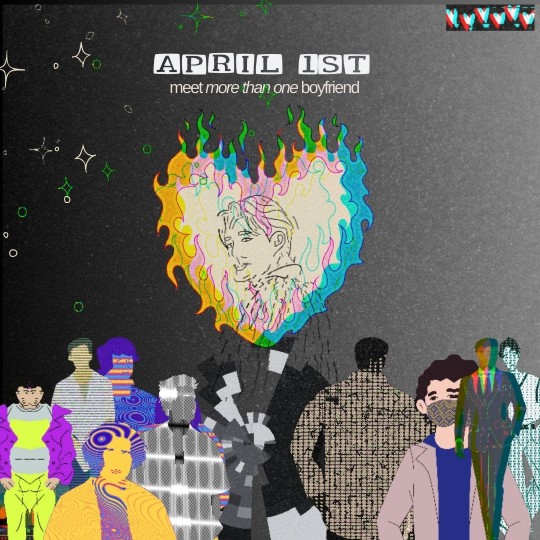
What is Boyfriend Village?
Boyfriend Village is, acclaimed literary journal, Black Warrior Review’s online edition, released once and sometimes twice a year.
We just opened submissions for our new issue More Than One Boyfriend!
Our submission call for the issue is as follows:
Black Warrior Review is seeking submissions of all genres for our eighth edition of Boyfriend Village: More Than One Boyfriend.
There’s a misconception about writing being a solitary pursuit. Even as a singular author working with a single piece of paper at a desk with only one chair, you have to ask: who provided the ink? How many people were involved in making the desk and the chair? How much history of production, engineering, mathematics, government, and philosophy is behind this single moment? More Than One Boyfriend seeks to correct this misconception by encapsulating the ways in which writing, like everything else, is a communal pursuit.
This might mean work authored by more than one person, yes, but also any work that is informed by more than one practice, more than one medium, more than one language, more than one voice, and more than one piece of art. It means ekphrastic work, erasure, reiteration, and bilingual writing. It means writing in conversation with and incorporating visual art, music, and interactivity; art that moves more than one of the senses. It means intersectional writing from writers with multifaceted backgrounds, whose work speaks to more than one mode of being. Writing that highlights more than one experience, more than one point of view, more than one voice, more than the one perspective we’re used to hearing the story from. Writing about the collaborative spirit; writing that tells the reader that they are more than just one.
More Than One Boyfriend asks for work that is more than itself.
This year’s issue is helmed by our first collaborative team of Online Editors, Darby Power & Jaric Sarmiento! Find out more about this dream team, and their vision for this year’s Boyfriend Village, on Instagram, Twitter, Tumblr, and Mastodon.
Submissions are open between April 1st, 2024, and May 1st, 2024. While themed, this is open to interpretation. If you think your boyfriend(s) might belong in our village, don’t hesitate—send them along!

#writeblr#artblr#call for submissions#writing#writers on tumblr#artists on tumblr#creative writing#spilled ink#literature#magazine#literary journal#fiction#poetry#creative nonfiction#publishing#amwriting#writerscommunity#writblr#writerscorner
3 notes
·
View notes
Text
Well, well, well...
It takes SO FREAKING LONG to get published that when it happens, even if it's just the second time, it feels a tiny bit monumental (which, I know, is an oxymoron, but just go with it). I am so beyond proud of the work I have created, both for this publication, and all the poems and stories I've written that have led me to this point. Can't wait to go even further into the wilderness of a writer's life and craft something even better!!!🌿
Read my poems (and others by some truly incredible writers I'm chuffed just to be featured with😋) at the link above, OR purchase a physical copy of Sixfold's Poetry Summer 2023 issue HERE!

LOOKIT, my name's in a description for a book you can buy on bloody Amazon!!!!! (nothing like a little recognition for my art to make me temporarily forget my seething hot hatred for that corporation)😂
#writing#literature#lit mag#sixfold#sixfold literary journal#literary journal#literary magazine#poetry#poems#poems and poetry#writings#words words words#art#poems on tumblr#poemsbyme#poetry lovers#poetry community#my poetry
4 notes
·
View notes
Text
In Berlin / Rinat Harel

View On WordPress
2 notes
·
View notes
Text
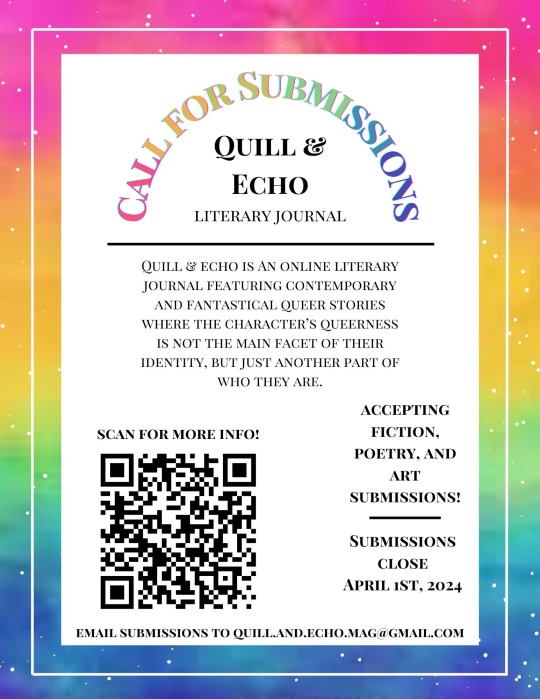
CALL FOR SUBMISSIONS: Our new online, queer, literary journal Quill & Echo is looking for submissions of fiction, poetry, and art! Submission close April 1st. No submission fee or payment to authors/artists. We can't wait to receive your work!
#literary journal#literary magazine#queer artist#queer community#queer artwork#writing#creative writing#call for writers#call for artists#poertycommunity#artcommunity
2 notes
·
View notes
Text
We are still putting this idea together, but I thought I would share some of our vision for future calls, promotion, and goals of this publication/project:
First for transparencies sake, it should be known that this blog is run by a neurodivergent system and as such there may be times when we are forced to temporarily shut down or outsource projects/calls/etc that allow for the best possible promotion of authors/artist/musicians/game designers/ect. possible. We will always give our thousand percent to the running of this publication, but please remember we are a single physical body and with a divided consciousness and limited energy and physical power. That being said, we are incredibly ambitious and have many dreams and interest in the next few years that we would like to explore! If you are interested click the read more.
Following the line of thought above, it should be known that as a system we have many different interests and pursuits in the arts. As such we would want to pursue audio submissions, visual submissions, written submissions, interactive submissions and recorded submissions. We have divided these interests into times of year according to when we will pay attention to them specifically and to enjoy bringing them to a wider audience. It should also be noted that all of these would have the same submission fee: 5$
We don't like to charge fees, but it is necessary to keep ourselves in a reasonable amount of independence and keeping the project going.
January 15th--March 15th
music, audioplays, musical art (such as soundscapes or other forms of using sound as an artistic medium--this would be a really experimental section) And would be published/promoted March 25th on this blog, plus on youtube, soundcloud, spotify (if allowed).
March 30th--May 15th
short films, music videos, recorded performance art, recorded plays, recorded monologues, and cryptidart which is something coined by me as something groundbreaking, undefined, new--just rattles the pervious held ideals of recorded art and what the genre can do. Would publish on this blog, as well as on YouTube. Published/promoted May 25th.
May 31st--June 15
RPGS, Tabletop and Board Games, Interactive Novels and Click Through Games (these would be published on itch.io [uploaded June 25th]) as well as visual art and pictures of *original* 3D prints of *original* characters and *original* fantasy/sci-fi concepts which would be shared here on the blog. [Concepts and visual/3D art would be shared in a weeklong upload frenzy between June 19th to June 26th]
June 30th--August 15th
Knitting patterns/Crochet Patterns/Loom Knitted Patterns to be shared in pdf form as well as printed as collection through amazon.com. The PDF will be shared on this blog. We will also be accepting photographic exhibitions of knitting projects to put in a weeklong "digital gallery" showing on this blog between August 25th and August 31st]
September 15th--October 15th
Poetry. short stories, CNF, and experimental writing. These writings will be shared as PDF on this blog, as well as a printed copy on amazon.com The collection will be themed and published on October 31st.
We would also do two retreats a year. (Not starting until at least 2024--but possibly later than that too.)
The first would be November 1st-8th. It would be a playwrighting retreat held digitally in which we present [1] 90-minute lecture on the first night and then host [6] two-hour workshops involving communicating with other writers and receiving feedback on projects and changes.
We would accept between 8 and 10 participants.
It would cost 20$ to apply and, if accepted, it would cost 250$ to attend.
The second would be December 15th-21st. It would be a poetry and visual poetry writing retreat held digitally. We would present [2] 90-minute lectures spaced out between [3] two-hour workshops to receive feedback on current projects and communicating with other writers.
This would also accept between 8 and 10 participants.
It is the same cost as above in both cases.
#litblr#literary journal#literary#literature#literary magazine#books & libraries#music video#video#artists on tumblr#digital artists#creators on tumblr#content creators#submissions#creative project#new outlet#music producers#screenwriters#independent filmmakers#RPGs#ambitious#Plans plans plans#lit#knitting patterns#knitting submissions#new kid on the block#call for submissions#digital retreats#creative writing retreat#editors on tumblr#creatives
8 notes
·
View notes